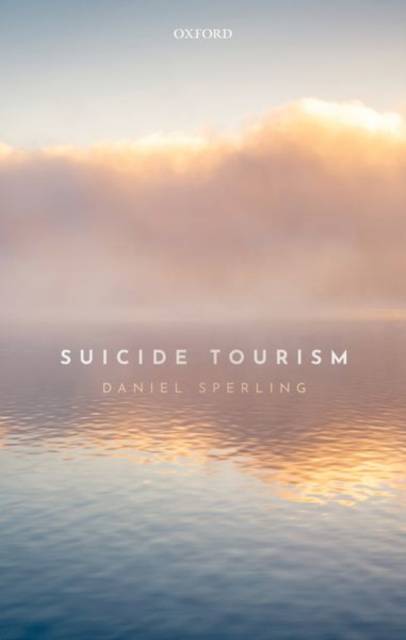
- Retrait gratuit dans votre magasin Club
- 7.000.000 titres dans notre catalogue
- Payer en toute sécurité
- Toujours un magasin près de chez vous
- Retrait gratuit dans votre magasin Club
- 7.000.0000 titres dans notre catalogue
- Payer en toute sécurité
- Toujours un magasin près de chez vous
Suicide Tourism
Understanding the Legal, Philosophical, and Socio-Political Dimensions
Daniel Sperling
Livre relié | Anglais
156,45 €
+ 312 points
Description
This monograph explores the phenomenon of 'suicide tourism': where people travel to other countries to receive assistance in committing suicide because their national laws do not permit such a procedure. Freedom of movement granted by international law creates problems with policies constrained by national boundaries, and as more countries contemplate regulating assisted suicide there is now a pressing need for a theoretical investigation of the issues, that provides a thorough appraisal of the global situation. Switzerland is no longer the only country where a person can find assistance for legal suicide. A similar law has been passed in Croatia, and Dutch and Belgium laws do not prohibit assisted suicide from non-residents. Four states in the US that provide for physician-assisted suicide could certainly represent another form of suicide tourism, in that - although in principle they allow assisted suicide only to residents of the given state - US citizens from elsewhere can overcome this restriction by leasing or buying property or applying for a driving license in these states. As more countries legally permit assisted suicide and do not necessarily debar the participation of non-residents, suicide tourism will become a larger and more complex global phenomenon. The book sets out the parameters for future debate by first contextualizing the phenomenon and casting light on how it is treated under international and domestic law. It then analyses the ethical ramifications, and weighs up where the state's responsibility to investigate, prosecute, or otherwise sanction accompanying persons, and review and regulate contractual agreements should lie. The third part of the book offers a sociological and cultural analysis of suicide tourism, a review of policy and media reports on the topic, and interviews with the various stakeholders, including policy makers, assisted suicide associations, and medical and patients' organizations held in Switzerland, Germany, France, Italy, the UK. The book concludes with a summary of the legal, ethical, political, and sociological dimensions of suicide tourism that offers recommendations for how professionals and policy makers might respond to this evolving phenomenon.
Spécifications
Parties prenantes
- Auteur(s) :
- Editeur:
Contenu
- Nombre de pages :
- 224
- Langue:
- Anglais
Caractéristiques
- EAN:
- 9780198825456
- Date de parution :
- 18-11-19
- Format:
- Livre relié
- Format numérique:
- Genaaid
- Dimensions :
- 142 mm x 218 mm
- Poids :
- 408 g

Les avis
Nous publions uniquement les avis qui respectent les conditions requises. Consultez nos conditions pour les avis.






